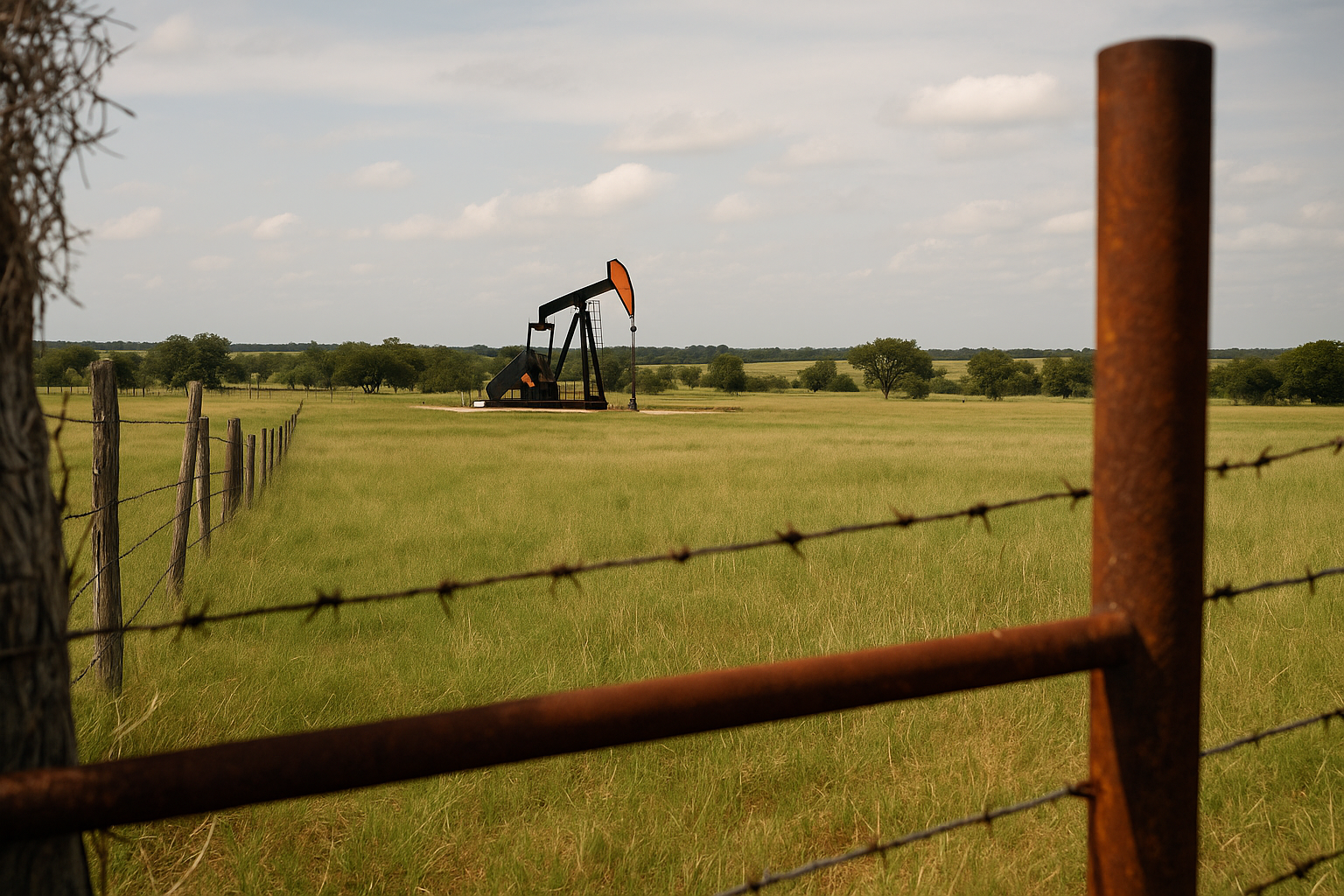If you own land in Texas, you already know it carries more than soil, fences, and pasture. Beneath the surface could be something far more valuable, your mineral rights. The Texas mineral rights value attached to your property is not always obvious, but for many landowners, it has turned into a life-changing financial resource.
Think of the stories you’ve heard: someone inherits land, assuming it’s just a dusty patch, only to learn it holds a hidden wealth of mineral rights that oil and gas companies are eager to pursue. Offers can appear quickly, and if you’re unfamiliar with the process, it can feel overwhelming. That’s why having a clear guide makes all the difference.
Understanding Texas mineral rights value
In Texas, surface rights and mineral rights are not always tied together. That means you might own the land on top while someone else owns what’s beneath. Or, you could be the one holding valuable rights underground while leasing out the surface for farming or cattle.
The Texas mineral rights value depends on factors like:
- The location of your land and whether it sits on active drilling zones
- Current oil and gas production nearby
- Lease agreements you’ve signed or could sign
- Market demand and commodity prices
What surprises most landowners is that even small acreage can carry a significant mineral asset worth if it falls in the right geological window.
The hidden wealth in mineral rights
When people talk about “hidden wealth,” they’re usually referring to something overlooked. With mineral rights, the oversight often comes from inheritance. Many families pass land down without explaining whether the minerals are intact, severed, or already leased.
Imagine finding out the rights under your inherited land are still yours. That can mean a new stream of income through royalties or even an upfront payment from a company wanting to lease or buy.
At Paint Rock Royalty, we’ve spoken with landowners who received offers within a single day of reaching out, with straightforward answers to every question. That kind of clarity is what helps people make decisions with confidence instead of confusion.
Oil and gas mineral value in Texas today
The oil and gas market fluctuates, but Texas remains a powerhouse. Regions like the Permian Basin, Eagle Ford, and Haynesville Shale still attract major drilling interest.
Your oil, gas mineral value in Texas isn’t fixed. It shifts with:
- Crude oil and natural gas prices
- Production levels in your county
- Drilling technology advancements that make previously unworkable land profitable
The takeaway? Landowners who check in regularly on their mineral asset worth often find opportunities others miss.
How to find the worth of your mineral rights
Many landowners ask: “How do I even start?” Evaluating your Texas mineral rights value doesn’t have to feel like decoding legal jargon. Here are steps that make it simpler:
1. Check your deed and past lease records
See if your mineral rights were separated from surface rights at any point.
2. Review current activity in your area
If wells are being drilled nearby, your rights may be more valuable.
3. Talk to professionals
A mineral rights broker or company experienced in valuations can give you specific numbers and options.
4. Compare offers carefully
Don’t jump at the first proposal. One company’s offer could be a fraction of what another is willing to pay.
At Paint Rock Royalty, landowners often start with a free review. Even if you’re not ready to sell, you gain a clear picture of what your mineral assets are worth. Learn more about our valuation process here.
A landowner’s guide to mineral assets
Every mineral rights owner should have a basic playbook. Here’s what to keep in mind:
- Know your rights: Owning mineral rights means you may receive royalties or bonuses if production occurs.
- Stay informed: Commodity prices change, and with them, your mineral value.
- Understand leasing vs selling: Leasing lets you keep ownership while granting exploration rights. Selling gives you a lump sum but transfers ownership.
- Plan for taxes: Income from royalties or a sale can impact your tax bracket.
This landowner’s guide to mineral assets is about being proactive. Waiting too long or staying in the dark could mean leaving money on the table.
Why checking your mineral rights now matters
Waiting can cost you opportunities. Commodity cycles move quickly, and companies don’t always come knocking unless they know you’re interested.
By taking the first step today, you put yourself in a stronger position. Even if you choose not to sell, knowing the worth of your minerals gives you leverage for the future.
If you’re ready to see what your minerals could be worth, contact Paint Rock Royalty today.
Conclusion
Owning land in Texas isn’t just about what you see on the surface. The real financial story often sits beneath your feet. Whether it’s oil, gas, or other minerals, your Texas mineral rights value could represent a hidden fortune.
Getting a clear answer doesn’t have to be complicated. With the right guidance, you can move from uncertainty to confidence and make decisions that benefit your family for years to come.
Ready to find out what’s beneath your land?
At Paint Rock Royalty, we make it simple for Texas landowners to learn the real value of their mineral rights. Whether you want to explore leasing options, consider selling, or just get a clear picture of your mineral asset’s worth, our team is here to guide you every step of the way.
Don’t wait for opportunities to pass you by. Contact Paint Rock Royalty today and take the first step toward turning your mineral rights into a meaningful financial advantage.
Frequently Asked Questions
How do I know if I own mineral rights on my Texas land?
Check your property deed or title history. Mineral rights may have been separated from surface rights in past transactions.
What factors affect the value of my mineral rights?
Location, nearby drilling activity, current oil and gas prices, and lease agreements all impact your rights’ value.
Should I lease or sell my mineral rights?
Leasing allows you to keep ownership and collect royalties, while selling provides an upfront lump sum. The right choice depends on your financial goals.
Can small acreage still hold value?
Yes, even small tracts can be profitable if they sit in an active drilling zone.
How quickly can I get an offer?
Some landowners receive offers within days once their minerals are reviewed by interested buyers.




